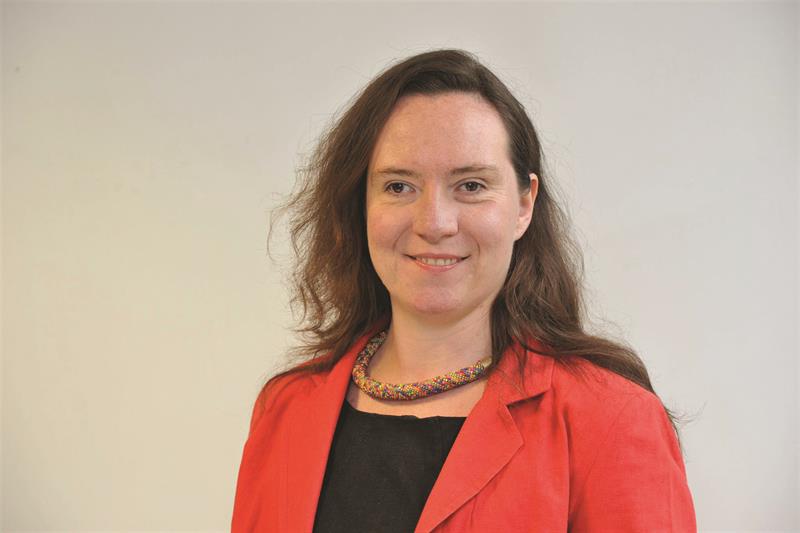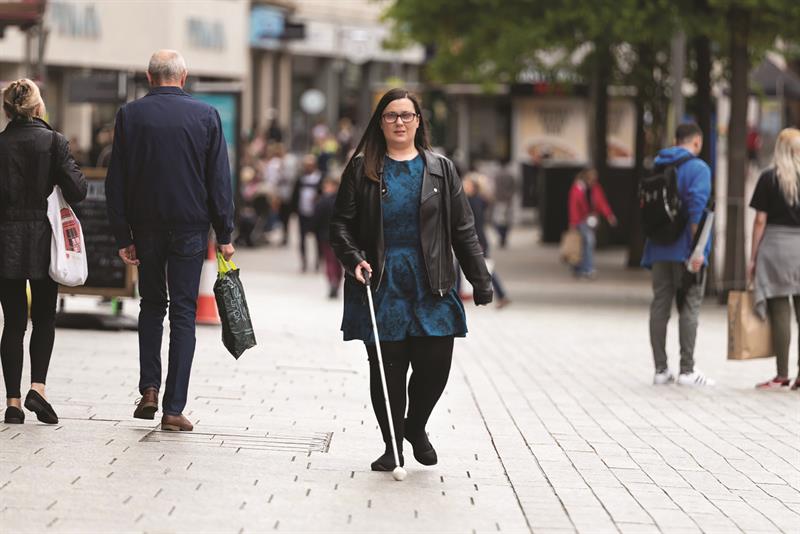
Blind and partially sighted people are increasingly anxious about going outside as lockdown eases, according to the Royal National Institute of Blind People (RNIB).
The charity said that the independence of people living with a visual impairment is increasingly under threat and social distancing has made it nearly impossible to navigate safely.
It shared that visually impaired people rely on others to maintain a safe distance but an RNIB poll found that 44% of the public have broken social distancing rules. As a result, 66% of blind and partially sighted people feel less independent than before lockdown. Additionally, 80% of respondents said the way they shop has changed with half as many continuing to shop independently.
In response, the RNIB has launched its World Upside Down campaign, which has called for people to think about the challenges faced by blind and partially sighted people and make small changes to keep everyone safe.
As part of the campaign, London’s advertising display, the Piccadilly Lights, ran upturned adverts every hour to represent the world turned upside down that people living with sight loss have faced during the pandemic.
Companies such as Amazon, Kellogg’s, Barclays and Lego have shared upturned images on social media to highlight the issue. The RNIB has also asked people to turn their profile pictures upside down and test themselves on its online social distancing quiz.
Help from the public
Eleanor Southwood, chair of trustees at RNIB, said: ‘Blind and partially sighted people like me are used to navigating a world not designed with us in mind, but social distancing has really turned our world upside down. A lot of the strategies and tools we use to get around safely, like being guided, are not allowed under current rules and many have been left stranded.
 Eleanor Southwood
Eleanor Southwood
‘We’ve heard from many blind and partially sighted people who are incredibly anxious about how to manage the situation, and we’re concerned this will have a real impact on people’s quality of life. The new normal risks causing a double lockdown for people with sight loss. This is not fair or acceptable.
‘We’re asking the general public to help us safely social distance while getting on with life. By being aware of the challenges we might face, and simply asking if assistance is needed, you can help us keep our independence and stay safe. We also want the government and businesses to take action, so that measures designed to protect us are inclusive to everyone, not just to those who can see them.’
Little changes
The RNIB shared the story of 33-year-old Rachael Pereira from Nottingham, who is registered severely sight impaired and relies on tunnel vision in her right eye as a result of glaucoma.
 Rachael Pereira
Rachael Pereira
Pereira said: ‘People tell me off for getting too close to them but I can’t see them there. It’s really upsetting because it makes me feel as though I put people at risk of contracting coronavirus.
‘It’s not just people either. I’ve even bumped my head on the clear Perspex screens at supermarket tills because they aren’t clearly marked. It’s little things like this happening every day that make me feel inferior and put me off from going out alone at all.
‘If people were more aware of the blind or partially sighted people around them, I feel like they might be more understanding. I really feel that floor markings for social distancing should be made tactile, so I can feel them with my cane. It’s little changes like this that could make a big difference.’
